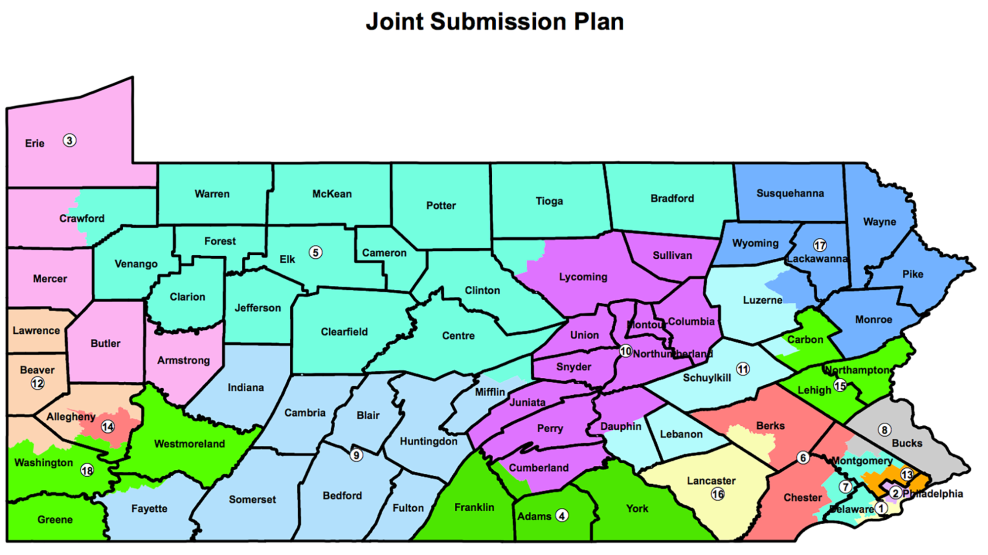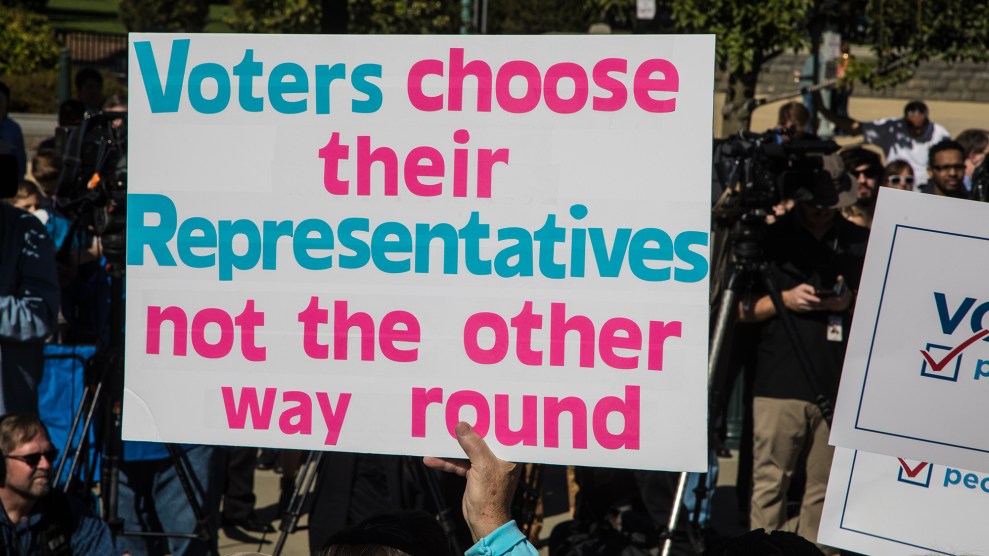
A Pennsylvania congressional map proposed by top Republican lawmakers in the state legislature on February 9.State Sen. Joseph Scarnati/senatorscarnati.com
Pennsylvania’s Democratic governor has rejected a congressional map proposed by top Republicans in the state legislature to replace a heavily gerrymandered map struck down in court, calling the new map a partisan gerrymander intended to maintain Republicans’ advantage. The decision by Gov. Tom Wolf makes it likely that the state supreme court will draft a map for the 2018 congressional elections, probably giving Democrats a good opportunity to pick up additional seats in the House of Representatives.
“The analysis by my team shows that, like the 2011 map, the map submitted to my office by Republican leaders is still a gerrymander,” Wolf said in a statement Tuesday. “Their map clearly seeks to benefit one political party, which is the essence of why the court found the current map to be unconstitutional.”
In January, the Pennsylvania Supreme Court struck down the current congressional plan as an impermissible gerrymander under the state constitution. The plan had reliably given Republicans 13 of the state’s 18 congressional seats, even though Pennsylvania is split almost evenly between the two parties. The court gave the legislature and the governor until February 15 to agree on a new plan, or the court would create one.
Last Friday, the Republican leaders in legislature, Senate President Pro Tempore Joe Scarnati and House Speaker Mike Turzai, submitted a new plan to the governor. Though the new map eliminated the strangest-looking districts by making them more compact, analysts found that it was just as gerrymandered as the current map. Moon Duchin, a mathematician hired by Wolf to evaluate the proposed map, reached the same conclusion.
The new map “is indeed an extreme outlier, exhibiting a decidedly partisan skew that cannot be explained by Pennsylvania’s political geography or the application of traditional districting principles,” she said in a statement explaining her analysis. “There is no more than a 0.1% chance that a plan drafted to comply with the Court’s factors would have been as favorable to Republicans as is the proposed Joint Submission Plan.”
Turzai and Scarnati have stated that they may challenge a court-drawn map or pass a new one to override it. The ongoing battle has national implications as Democrats attempt to take back control of the House of Representatives in November. A court-drawn map would almost certainly result in more Democratic-held seats—potentially as many as two to three more.











